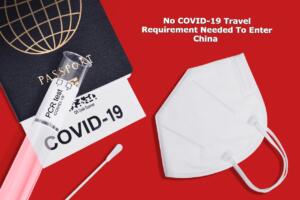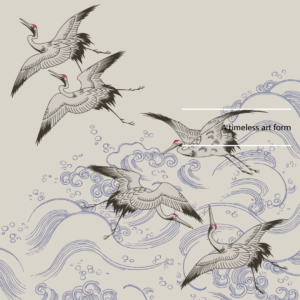Tricks on how to set-up a proper CV or Resume
As part of the China Scholar comprehensive support for our clients, we support our international students studying in China to secure admission to top Chinese Universities. We help them achieve internships and allocate them to a personal Career Coach and Study Mentor who are professionals to assist you in succeeding. It’s more than just admission.
Are you looking for work or an internship while studying abroad? Then you need one thing for sure: a CV, but what does curriculum vitae mean? Very officially, curriculum vitae (CV) means ‘life course.’ In other words, the path of life you have already followed. And now to the point: in your resume, you put your work experience and diplomas in a row, together with personal information, such as hobbies and skills.
A recruiter often takes a quick look at your resume before reading your cover letter. The essence of a resume is to quickly give an employer a good overview of what you have in your march. Do you have the right degree for a job? Or the required work experience? Does your profile fit the candidate they’re looking for? A recruiter reads it all off your resume (and cover letter).

The Elements of a Good CV
I’m sure the question is familiar to you. What’s in my resume? With your CV, you have to convince recruiters of your motivation and unique qualities. So: take another critical look at your resume through the eyes of a recruiter.
Realize that recruiters get a lot of CVs daily. Time is precious. So it is inevitable that a CV that has visibly not been paid attention to will be pushed aside. So make sure your CV looks well-groomed, accessible, and clear. The first blow is worth a drop!
Emphasize qualities that are relevant to the position you are applying for. Do you aspire to a position in Finance & Control? Then your knowledge and training must be right in line with that. And it helps if you report that you’ve been checking the financial statements at the local hive ball association for years. Excellent job in the customer service atmosphere? Then give examples that show that you are easily engaged with people and are set up on duty. For example, did you sit behind the reception of a hotel during a holiday job? Then that says a hundred times more than “I’m welcoming.”
Your cv (curriculum vitae or ‘life course’) is a clear, accessible list of who you are, what you can do, what your experience is, and what sets you apart. Everything you mention in your resume must be relevant and accurate.
Pay time and attention to your resume. Put this away for a while to distance yourself, then look at it again with a fresh look. Be inspired by CV examples on the Internet. Ask someone you trust how your resume looks like him or her.
List the requirements of the vacancy; primary above, least important bottom. Per requirement, you will see what information about your knowledge, training, and skills fit. So you have to write them down in the CV. So no people get a call. Just ask them if these people want to cooperate.
Contact information
Before you put your contact information on your resume on autopilot, reflect and take time to review this because this paragraph is where you can already make a difference. Do you have a driver’s license? Put it in. Do you have your website or online portfolio that is relevant to the job? Are you applying for a creative career, and is your Instagram account a piece of art? Don’t forget to mention it.
Necessary contact details are:
- Your first and last name
- Your address
- Your date of birth
- Your phone number
- Your email address (your most professional address is recommended)

Express yourself
An excellent way to make your resume stand out? Put a short, personal piece on yourself in it. It’s a little bit of work. Because you cannot express yourself by copying your cover letter and using clichés, but this makes your resume more than just a piece of paper with what you can do.
Experience
What does a recruiter look at the most? At relevant work experience, of course. So don’t put your resume on hold with all those side jobs you only lasted two months. But put posts on it that you’ve benefited more than just making quick money. This way, the reader will think: look, he’s ready for this job. If you also tell each relevant job, briefly what your tasks were and put the jobs in order from past to present, then your CV is ready!
Afraid that of what the employer or recruiter thinks of your resume? Then dividing up your work experience is the solution. For example, ‘relevant work experience’ and ‘other work experience.’
No work experience?
You don’t have that much work experience yet? I’m sure there are unusual or relevant projects and assignments that you did at school. Tell us what kind of role you had in it and which qualities came in handy. Did you do any volunteer work? Then that’s good to mention.
Training
Those years of working hard at school deserve a beautiful place on your resume. Don’t forget to mention if you graduated. By the way, have you done an exciting thesis, minor or extra study activities? Then put these in there too.
Knowledge and skills
Putting knowledge and skills on your resume is a good one. But omit general things, like Word knowledge. These skills are common. Make it stand out. For instance, mention content management systems that you have mastered or languages that are useful in your future job.
Cv with photo: yes or no?
A picture on your resume? No picture on your resume? It is best to say just do a resume with a photo. A simple portrait photo taken with daylight where you look straight into the camera and smile is always right. You remember someone much better when you have a face with it, don’t you?
Perfecting
Personal data? Check. Experience? Check. The picture on your resume? Check. Ready to send your resume. Just look at the tips below before you do that, to make sure your professional resume looks super tight.
- Don’t make your resume longer than two A4s.
- Create a basic CV and adjust it every time to the job you are applying for. How to create a perfect match with the function every time
- Make your cv clear and scannable. With intermediate cups, logical order and neat alignment
- Indicate your name in the header of your resume. Especially useful for a recruiter who can find your resume so quickly.
- Use a representative email address.
- Use hyperlinks in your resume. Do not use an overload of links, but put up to three.
- Print your resume for the final check. You often see mistakes on paper faster than on your screen.
- Always have your resume checked by someone else. Four eyes see more than two.
- Check everything? Then save your resume as a PDF file, so there’s nothing left in the formatting.
You don’t want to make the following mistakes on your resume.
On the Internet, you will find plenty of tips and tricks about what should be in a CV. But what are the things you shouldn’t do when making a resume?
- 1. Infinitely long texts
Make your resume short and powerful. Long texts with many vague words do not belong to this plan. The most important factor here is that the recruiter gets a good idea of the knowledge and experience you already have and the talent you can still develop. So write down only the most important one. If you don’t have much experience, a CV of one A4 is fine.
- 2. Abbreviations
“Important within my job was UGC. Furthermore, I had to deal with CRM, EPC, SERM…” The recruiter probably has no idea what you’re talking about. Therefore, try to avoid abbreviations and jargon. If you don’t bother translating professional terms into understandable text, the recruiter won’t either.
- 3. Lying
You want to show yourself on your best side. Making your CV look better by doing something here and there? It’s okay, but you know: recruiters are trained to poke through it. So don’t turn your resume into literary fiction.
- 4. Do not respond to the vacancy text
Every recruiter knows that the perfect candidate doesn’t exist. But you can get close. How? By writing your CV in such a way that it matches the job, you are applying for.
In your CV, emphasize the most essential features in the job text. Does the vacancy say you have to be stress-resistant? Especially put work experience on your CV that shows that you are at your best in stressful situations. Aren’t you doing this? Then you leave a unique opportunity to distinguish yourself.
Want to Study in China? You will love it.
Everyone should be able to study in China in a lifetime. The culture is beautiful and unique, as well as the experience. China Scholar provides admission services and career development programs in China. We have changed the face of admission to include a comprehensive service package. Our clients do not have to worry about making study and career choices alone. We have Ph.D. holders, professors, and experts in these fields who support our students to make life long decisions.
Aside from getting admission into a top Chinese University, you get career consulting, Internship placement, job matching, Campus support, Assimmialtion services, and access to our student communities all year round. Submit the inquiry form to book an appointment with our team










